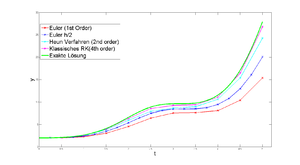 Image via Wikipedia Image via Wikipedia |
| THC |
The research was published in the September 1975 issue of Journal of the International Cancer Institute, which can be found here on PubMed or here in full-text on United Kingdom Cannabis Internet Activist.
Moreover, this article is not alone. In 2010, an article entitled "Cannabinoids reduce ErbB2-driven breast cancer progression through Akt inhibition" was published in the Volume 9 of the Molecular Cancer journal, the full-text of which can be read here. In summary, the authors conclude that "these results provide a strong preclinical evidence for the use of cannabinoid-based therapies for the management of ErbB2-positive breast cancer." At the bottom of the article, you'll notice the many articles relating to cannabis and cancer on which the paper was based.
The two articles mentioned here are just a couple of the many that have been written on the subject. Is it possible that cancer has a cure? Is it possible that the cure has been overlooked or ignored?









